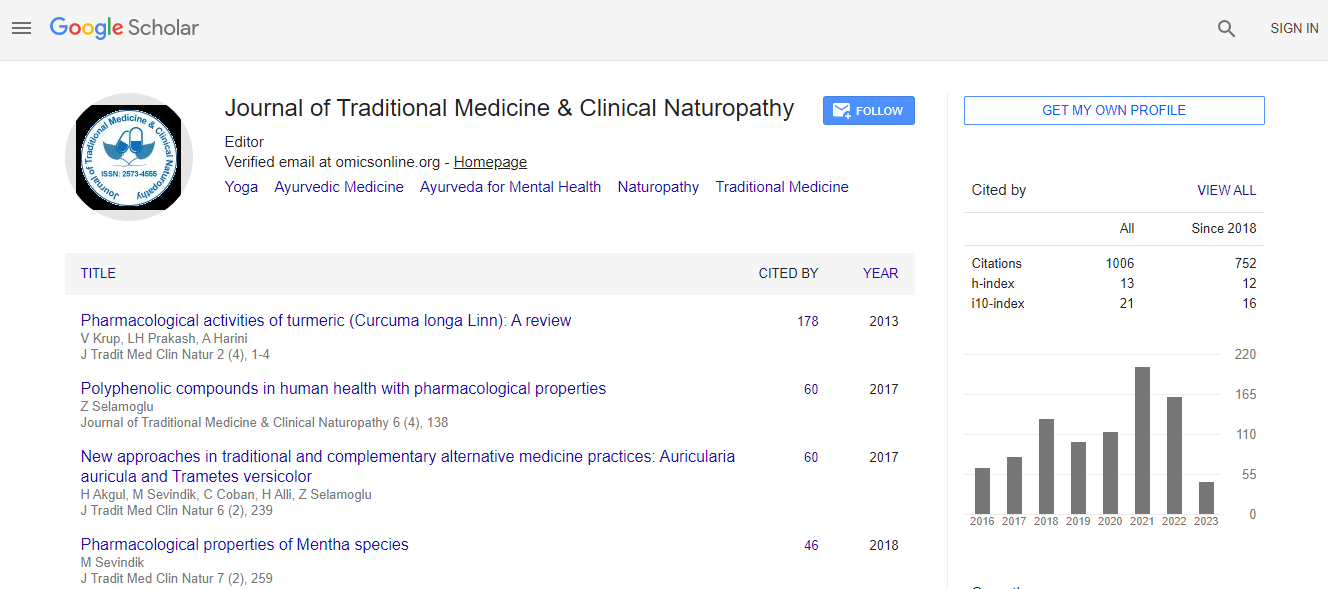Research Article
HIV/AIDS Education in Traditional Indian Systems of Medicine: Faculty Perspectives
| Jayagowri Sastry1*, Vineeta Deshmukh2, Vijay Dhoiphode3, Asmita Wele4, Manisha Solanki5, Farha Rizwan6, Amita Gupta7 and Anita Shankar8 | |
| 1Head, Department of Clinical Research & Development, Shrimati Kashibai Navale Medical College and General Hospital (SKNMC-GH), Pune, India | |
| 2Bharatiya Sanskriti Darshan Trust’s Ayurved Hospital and Research Center, Pune, India | |
| 3Tilak Ayurved Mahavidyalaya, Pune, India | |
| 4Bharati Vidyapeeth College of Ayurved, Pune, India | |
| 5Dhondumama Sathe Homeopathic Medical College, Pune, India | |
| 6ZVM Unani Medical College, Azam Campus, Pune, India | |
| 7Johns Hopkins School of Medicine, USA | |
| 8Johns Hopkins School of Public Health, USA | |
| Corresponding Author : | Jayagowri Sastry Department of Clinical Research & Development Shrimati Kashibai Navale Medical College and General Hospital (SKNMC-GH) 49/1, Off Westerly Bypass Highway, Narhe (Ambegaon) Pune 411041, India Tel: +917709001112, +912025893952 E-mail: gowsas@gmail.com, gowrisastry@skhnmcgh.org |
| Received September 19, 2013; Accepted October 22, 2013; Published October 24, 2013 | |
| Citation: Sastry J, Deshmukh V, Dhoiphode V, Wele A, Solanki M, et al. (2013) HIV/ AIDS Education in Traditional Indian Systems of Medicine: Faculty Perspectives. J Homeop Ayurv Med 2:136. doi: 10.4172/2167-1206.1000136 | |
| Copyright: © 2013 Sastry J, et al. This is an open-access article distributed under the terms of the Creative Commons Attribution License, which permits unrestricted use, distribution, and reproduction in any medium, provided the original author and source are credited. | |
Abstract
Background and objective: There are over 500 colleges within the Indian System of Medicine and Homeopathy (ISM & H) that includes Ayurveda, Yoga and Naturopathy, Unani, Siddha and Homeopathy (AYUSH). Therapies from AYUSH are widely utilized throughout India for both acute and chronic illnesses and may be an important source of care for HIV-infected individuals. This qualitative study documents faculty perspectives within AYUSH institutions of higher learning to understand how the etiology, diagnosis and treatment of HIV/AIDS taught within their curriculum.
Methods: Thirty-three faculty and student informants from five AYUSH institutions in Pune and one College of
Siddha in Chennai were interviewed from June 2009-August 2010. Topics included etiology, pathogenesis, diagnostics, treatment and management of HIV/AIDS within each system.
Results: Thematic analysis revealed that although generally biomedical textbooks were used to provide the
background training on HIV/AIDS and diagnostics, the pathogenesis and symptomatology allowed the disease entity to fit into established disease concepts within the relevant AYUSH system. Each AYUSH system viewed HIV as an amalgam of conditions and abnormal lifestyles leading to the disease. In general, in AYUSH, there was greater reference to religion and a moral component in disease management and prevention. Faculty from Ayurveda, Unani and Siddha faculty stressed the need for positive health promotion through lifestyle changes in diet and adherence to healthful daily routines. AYUSH faculty believed in referring patients to biomedicine for antiretroviral therapy (ART), although indicated that alternative treatments may be provided in addition to ART.
Conclusions: There is no formal inclusion of AYUSH treatments within the national Indian HIV health policy,
yet AYUSH practitioners exceed that of medical doctors. Greater efforts are needed to identify areas of collaboration between experts in biomedicine and AYUSH medical systems in India.

 Spanish
Spanish  Chinese
Chinese  Russian
Russian  German
German  French
French  Japanese
Japanese  Portuguese
Portuguese  Hindi
Hindi 
